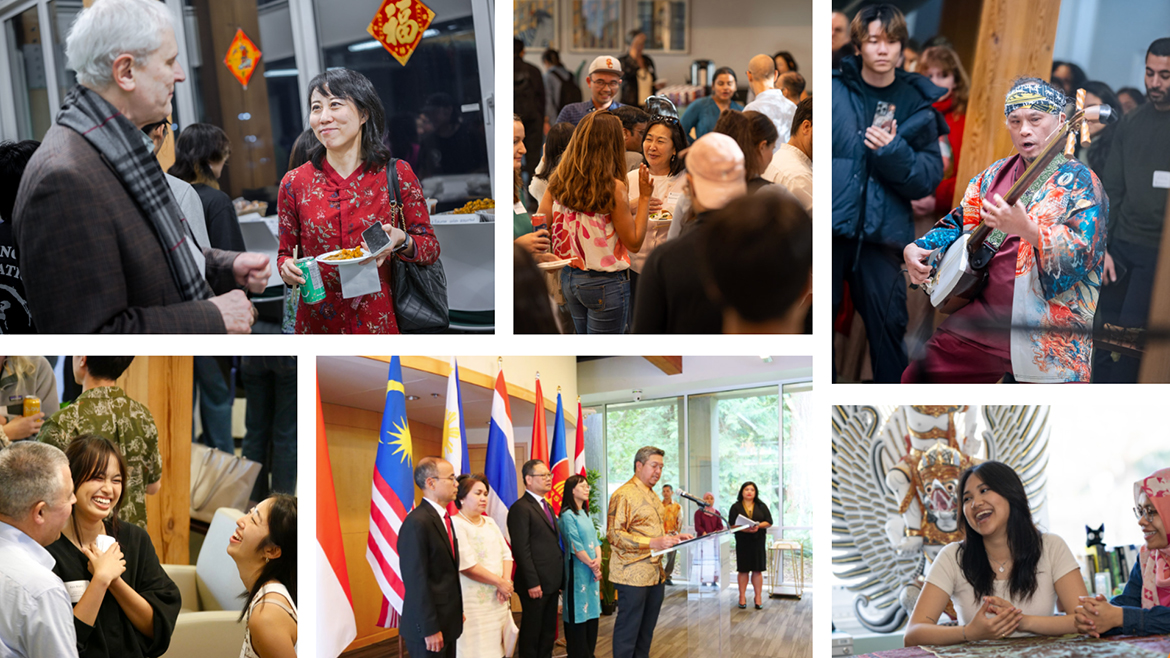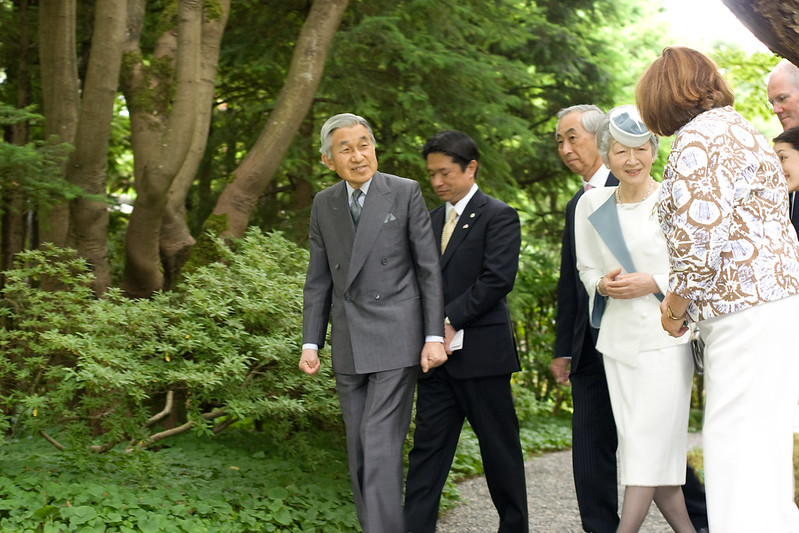

Emperor Akihito and Empress Michiko of Japan receive a tour around UBC Nitobe Memorial Garden, Photograph by Phillip Jeffrey
The Centre for Japanese Research (CJR) was established in 1991 under the Institute of Asian Research at the University of British Columbia. Its formation was part of a significant restructuring of the Institute, which aimed to create five regional research centers to promote interdisciplinary research on the Asia-Pacific region. This expansion was supported by over $20 million in endowments and grants, raised through the UBC World of Opportunity Campaign led by then UBC President, Dr. David W. Strangway.
The funding for CJR’s establishment was a collaborative effort involving Konwakai (the Vancouver Japanese Businessmen’s Association), Keidanren (the Japan Federation of Economic Organizations), and the Government of British Columbia. Additionally, Konwakai and other supporters contributed to a $1 million renovation of the Nitobe Memorial Garden on the UBC campus, further enhancing the university’s Japanese cultural and academic infrastructure.
CJR commenced its series of seminars on Japan-related topics in 1992, providing a platform for discourse and exchange on contemporary issues related to Japan. In 1993, the Center began subsidizing Japan-related research projects for CJR-affiliated faculty and Ph.D. students, fostering academic research and encouraging scholarly contributions to the field of Japanese studies. A milestone event in CJR’s history occurred in 2009 when Emperor Akihito of Japan visited UBC, underscoring the important role of CJR in promoting Japan-Canada relations and the center’s contributions to academic and cultural exchange.
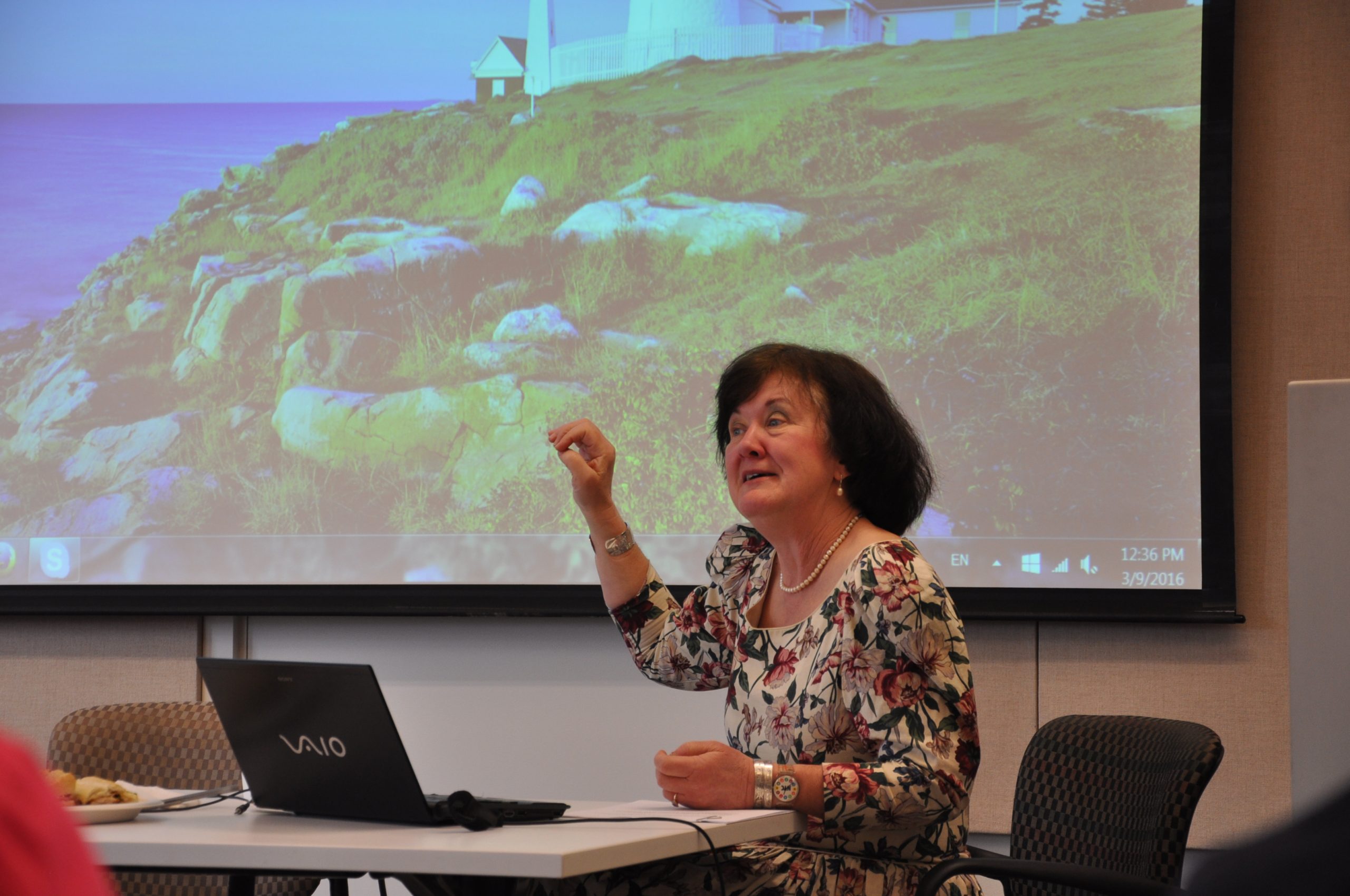
From a talk on "Fukushima Disaster Five Years On", March 2016.
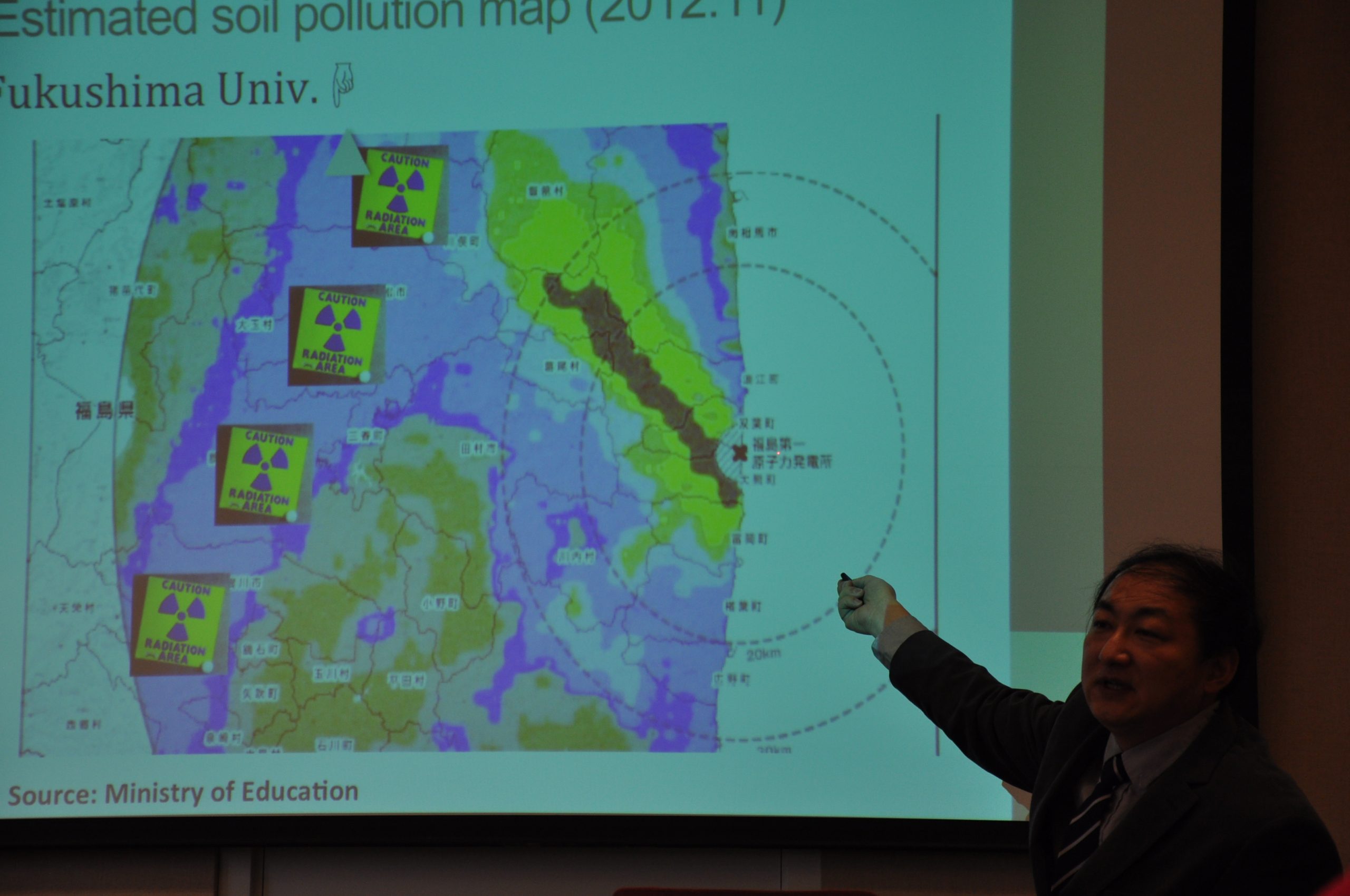
Presentation at CJR's talk titled "Fukushima Disaster Five Years On", March 2016.

Poster for a Booktalk on "Dancing the Dharma".
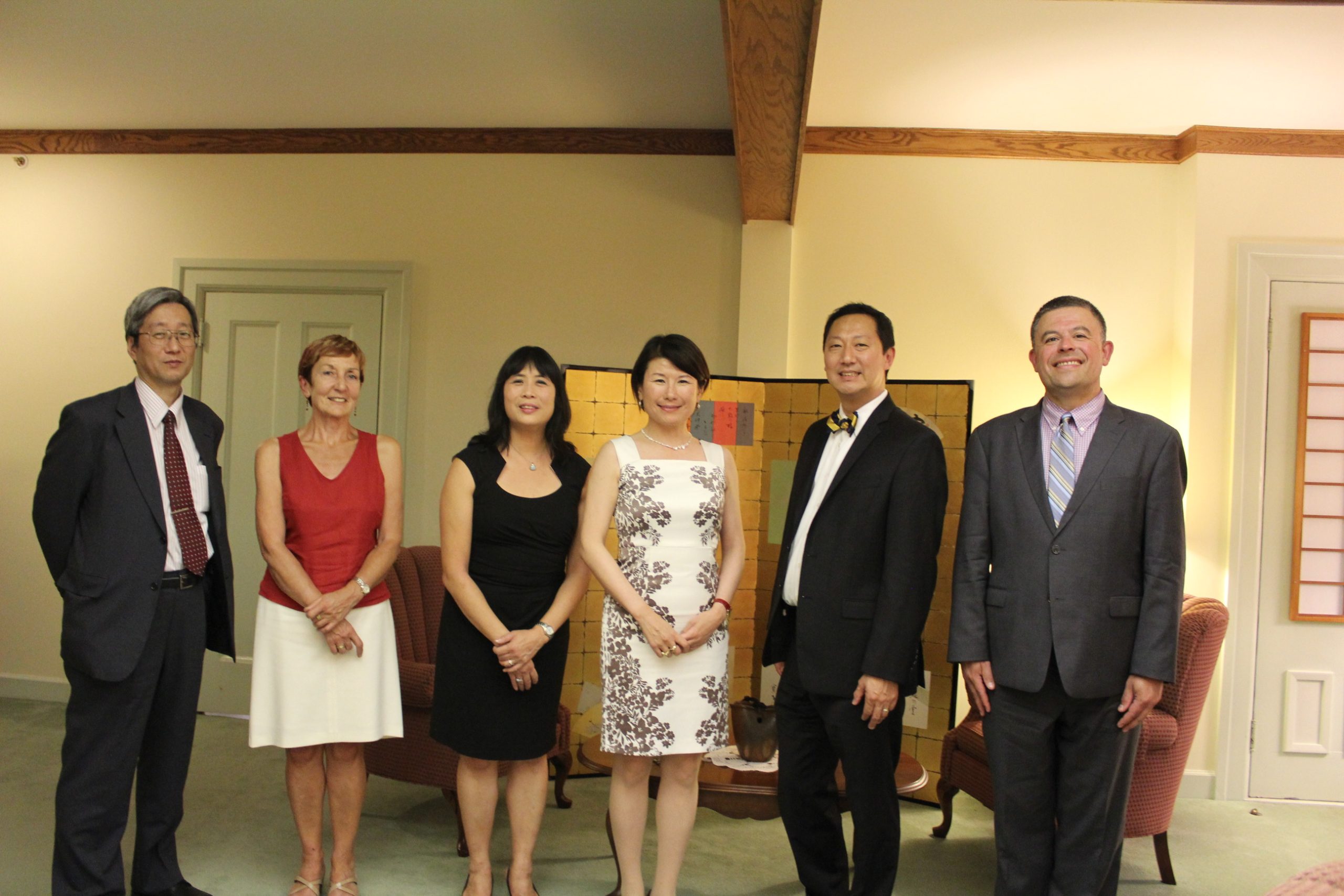
Former UBC President Santa Ono (second from the right) with CJR DIrector Yves Tiberghein and CJR affiliaites , August 2016.
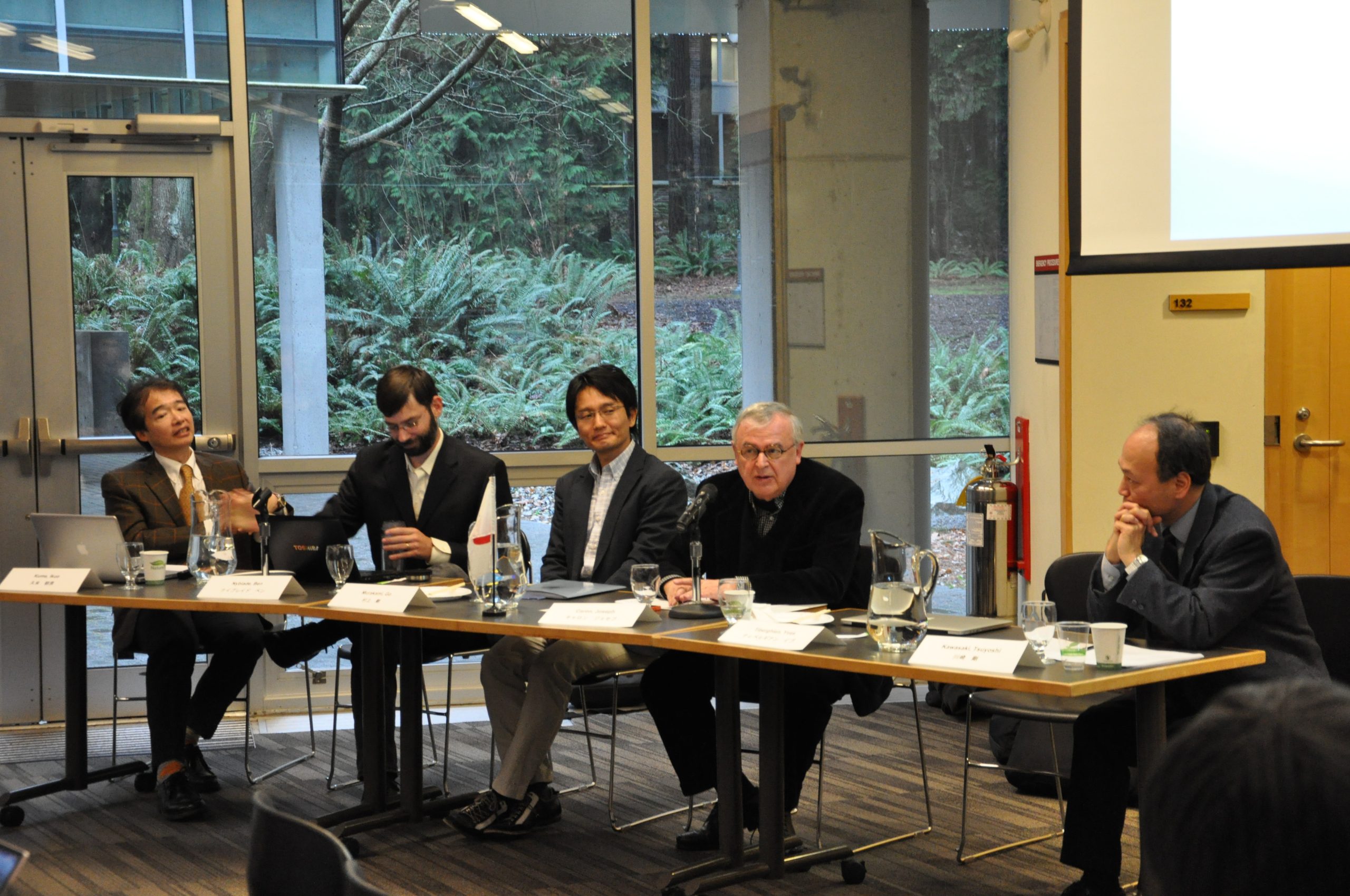
Panel Talk on the 2013 Election in Japan, January 2013.
In recent years, the Centre for Japanese Research has continued to expand its activities through various seminars and workshops. The long-running CJR Lunchtime Series has played a particularly instrumental role in generating discussion on a diverse range of topics that appeal to a broad audience. In 2016 for the series featured a talk titled “Critical Ethnography of Decorative Rebellion: Japanese Girls Subculture in Harajuku”. In the same year the Lunchtime Series also included an event on Japanese tea culture in which participants had a chance to learn about the history of the Japanese way of tea while simultaneously experiencing a traditional tea ceremony.
In addition to this the Centre organized regular talks on recent publications addressing Japanese politics, history, and culture. In 2021, CJR hosted a virtual book launch for “Dancing the Dharma”, a publication by Professor. Susan Blakeley Klein which examines Japanese Buddhist practices through dance. A landmark event held by CJR in recent years was a series of panel discussions on the Fukushima disaster—held in March 2021. Organized collaboratively with the University of Tokyo, the event provided a space to reflect on the tragedy of this nuclear power plant disaster and discuss lessons for risk assessment and social resilience learnt in its aftermath. It featured academics from both organizing universities as well as regulators and leaders working on nuclear power management. One of the talks from this series is available to watch here.
Currently, the Center for Japanese Research is led by Professor Yves Tiberghien, who continues to build on the legacy of his predecessors. Under his leadership, CJR remains a vibrant hub for research and dialogue on Japan, facilitating academic inquiry and fostering connections between scholars, policymakers, and the broader community. Through its ongoing initiatives, CJR upholds its commitment to promoting a deeper understanding of Japan and its role in the international liberal order.


